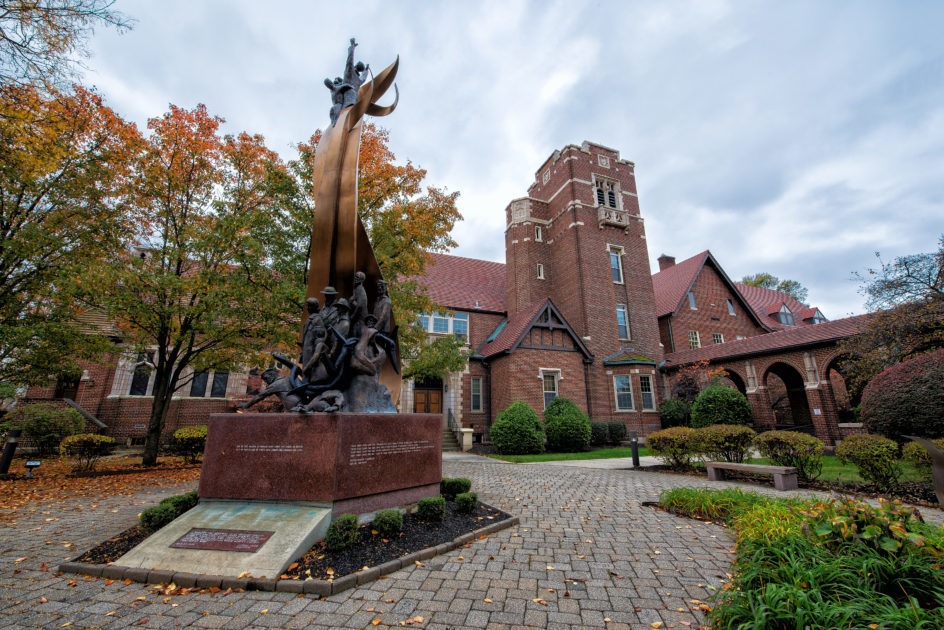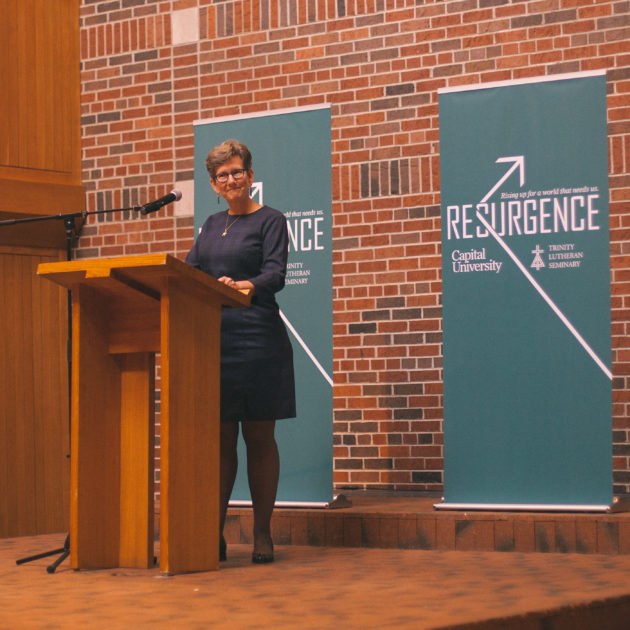Capital and Trinity Lutheran have been working on their integration for the last few months and will become one institution on Jan. 1, but what does this integration mean for the future of the institutions?
According to Stan Olson, the interim president of Trinity, a big concern for Trinity’s community is maintaining their identity as an institution. In order to solidify that, the seminary will keep its name and continue to offer the same kinds of degrees. They will also keep many of the traditions and programming that they’ve had throughout their years as a separate institution.
The other side of that is the change that may come to Capital’s identity. In President Beth Paul’s opinion, the integration won’t change Capital’s identity, but enhance it.
“It does not change our identity, it prompts us to be reflective of our identity,” Paul said. “But we should always be reflective on our identity and really thinking about why we believe in what we believe in.”
The integration also comes with the reality of losing members of the community due to employment cuts, which is upsetting for the Trinity community. Terry Lahm, associate provost, said the integration team has been keeping Trinity students in mind and thinking about their experiences while making employment changes.
Paul says a way the integration team is trying to combat that is by finding a place at Capital for as many of the previous employees of Trinity as possible.
There are also many changes to Trinity’s operation that will happen due to the integration, such as the change of program offerings at Trinity, what institution’s name will be on graduates’ diplomas, and how potential students will apply.
Lahm says Trinity’s degree offerings are going through program review throughout the year, and there’s likely to be changes to the current programs. Although it has not been set in stone, it’s possible that some programs may be removed.
After the integration is complete, Trinity students will receive a Capital University degree. At least for now, Trinity’s graduation ceremony will be separate from Capital’s. Lahm said this may change in the future, but the topic still needs more thought and discussion.
Potential seminary students will also apply differently than in the past. Rather than having a separate admissions program, recruitment for Trinity students will be through our already existing adult and graduate admissions program. This is how any student would apply for a graduate degree from Capital.
With the integration of the institution comes the question of financial risk. Paul says one of her jobs during the integration is to create a five-year model that will keep the seminary financially responsible for itself. She says those working on the integration have worked to eliminate as much risk as possible for the university.
“Even though the institution would be integrated with capital…the seminary still needs to be self-sustaining [financially],” Paul said. “So it won’t be a drag on the university in that way.”
Although the risk has been minimized, Capital will still be responsible for any debt Trinity has acquired on Jan. 1. Trinity recently took out a loan to pay for an upgrade to their heating and cooling system, totaling over $600,000.
“Capital already has debt that we maintain and pay off every year,” Lahm said. “So this part, which is just slightly over $600,000, will become part of our overall debt, which is just over $30 million.”
Despite this, Paul and Lahm both said that the integration will not affect tuition at either institution.
Capital and Trinity announced their intent to integrate last year and have been working over the last few months to make it possible.
The institutions had to separate in 1959 due a new rule by the church, saying seminaries should be separate from universities. Paul says that there have been talks of re-integrating the institutions for years, but they were waiting for the right time to do so.
The institutions were drawn to integrate because of their shared history, and the ability for students to receive dual degrees in seminary study and a more typical profession. Another reality is that seminaries and other single-career institutions, such as law schools, tend to do better when attached to a university.





